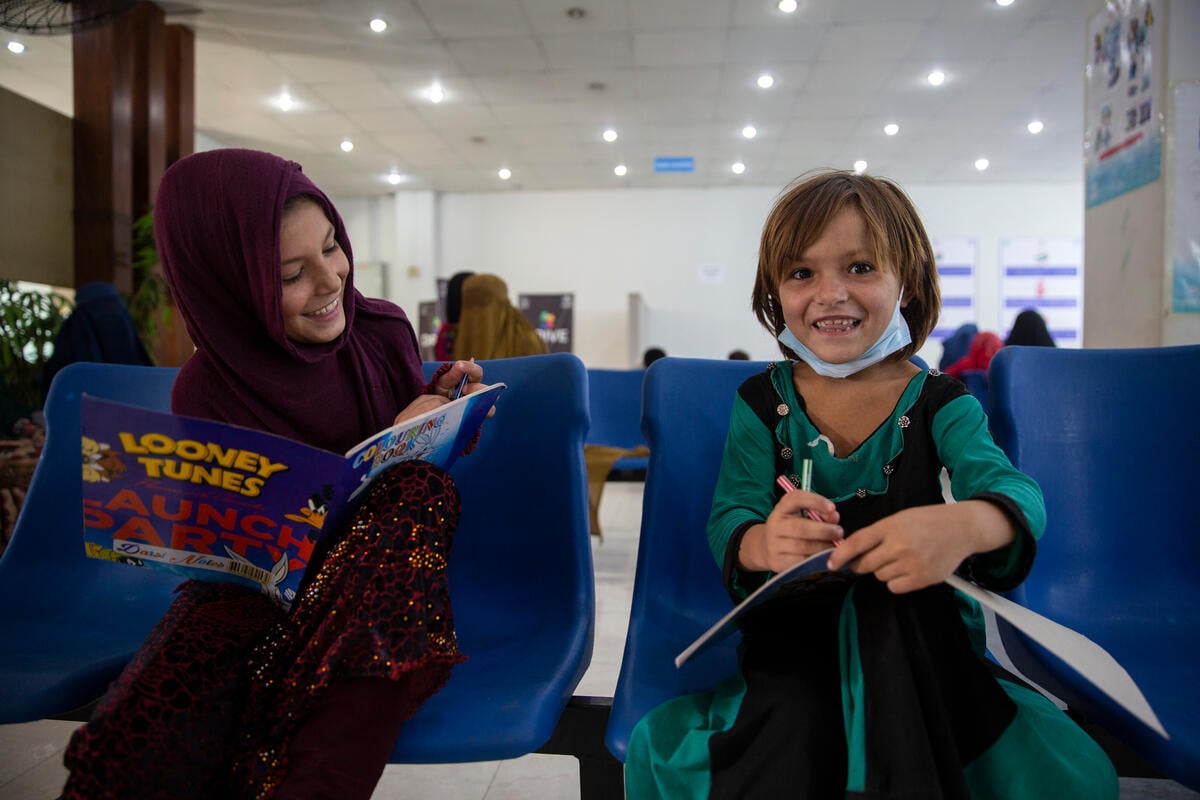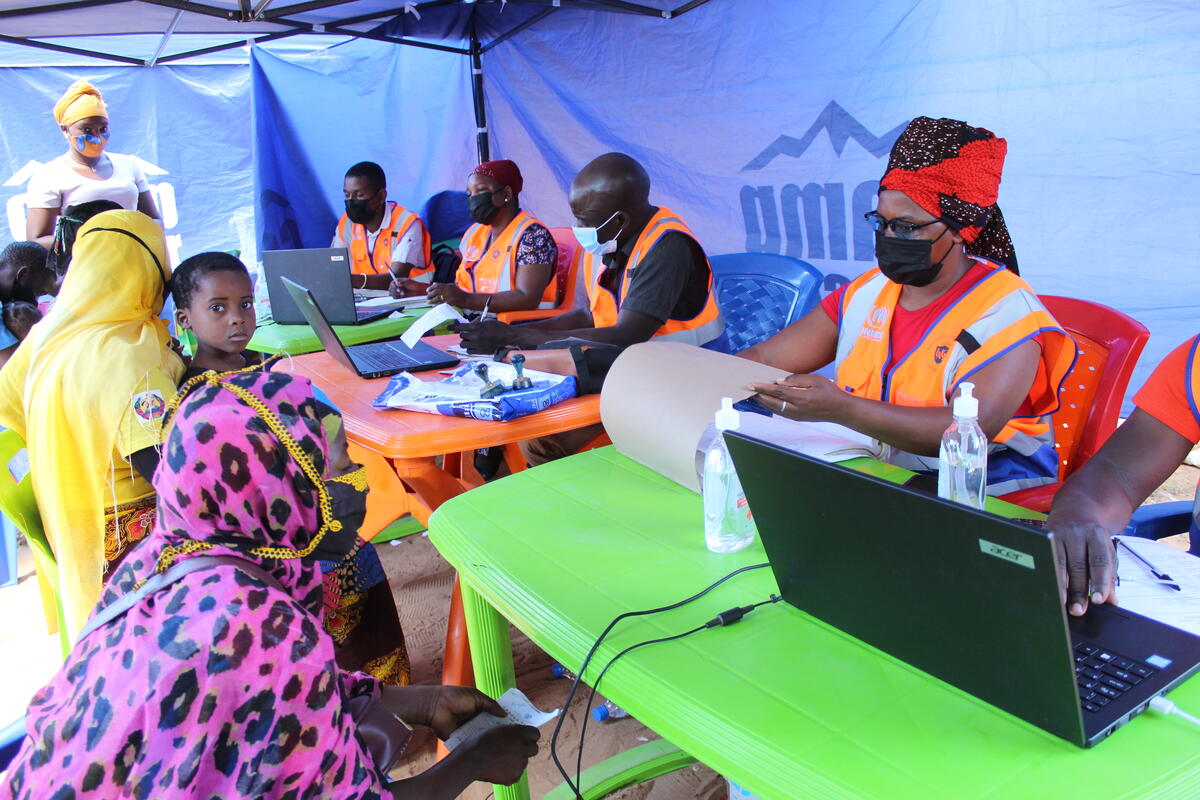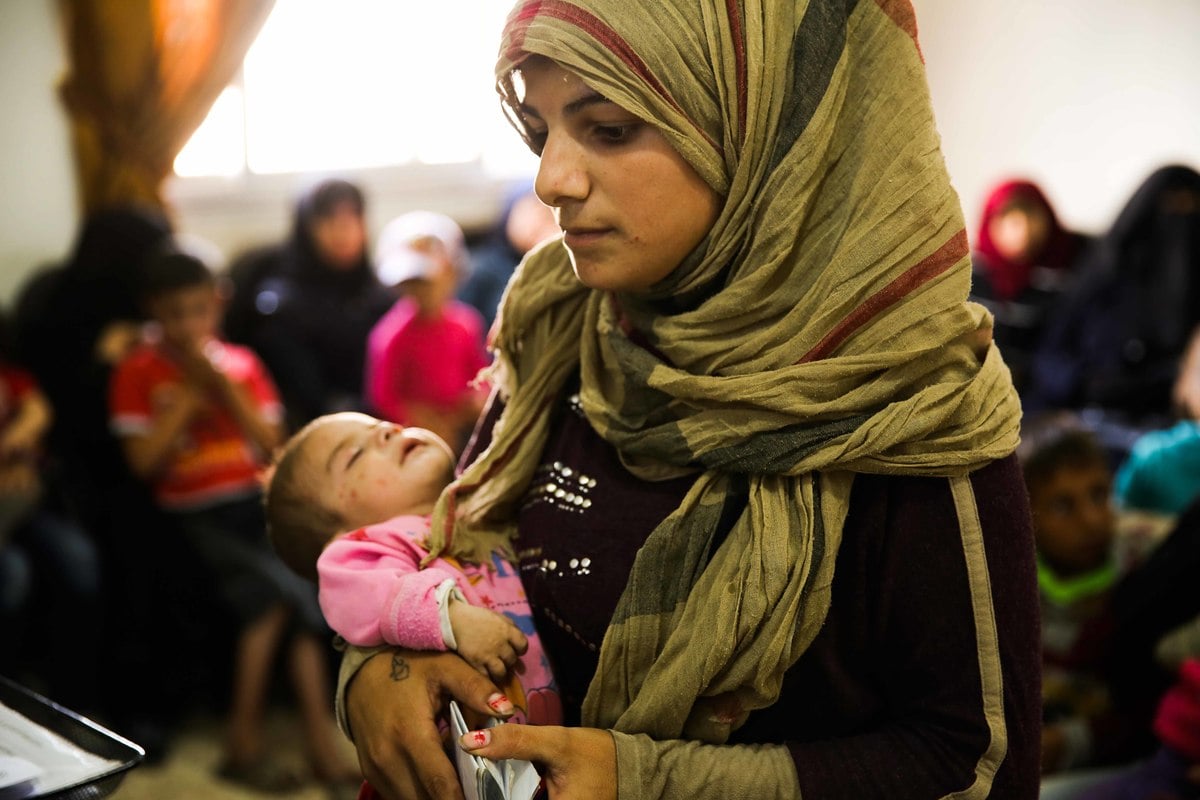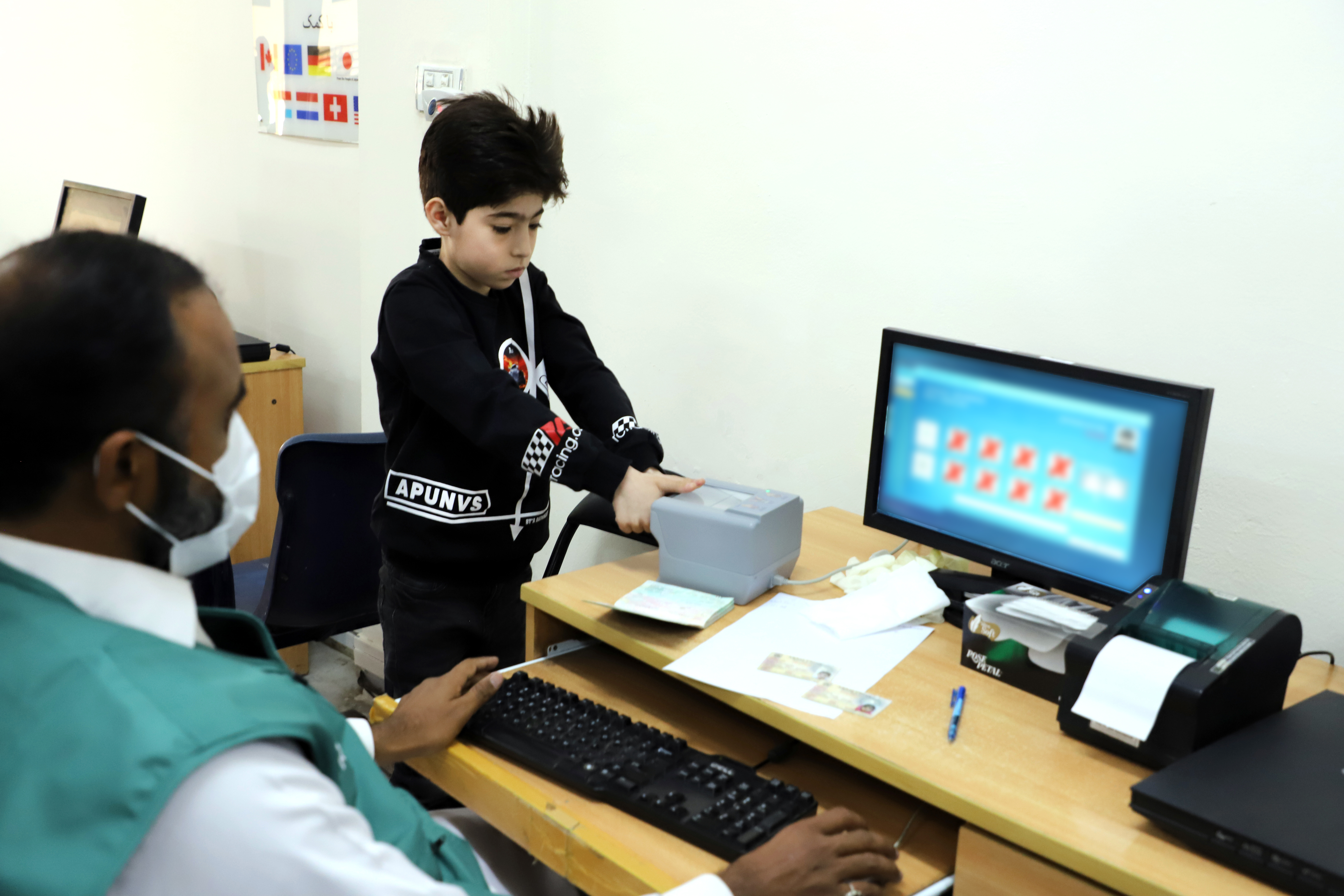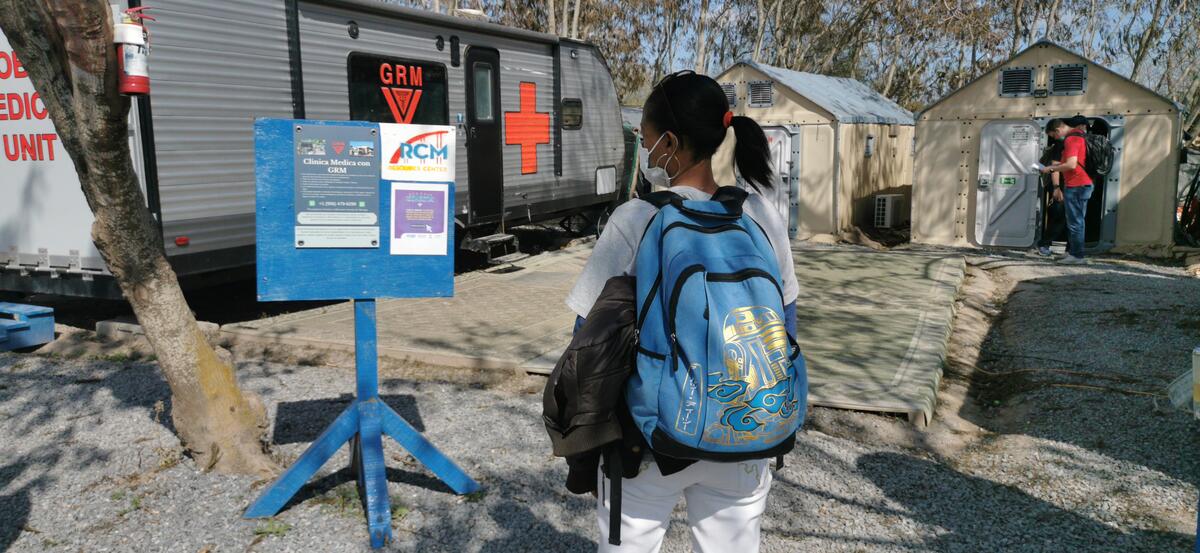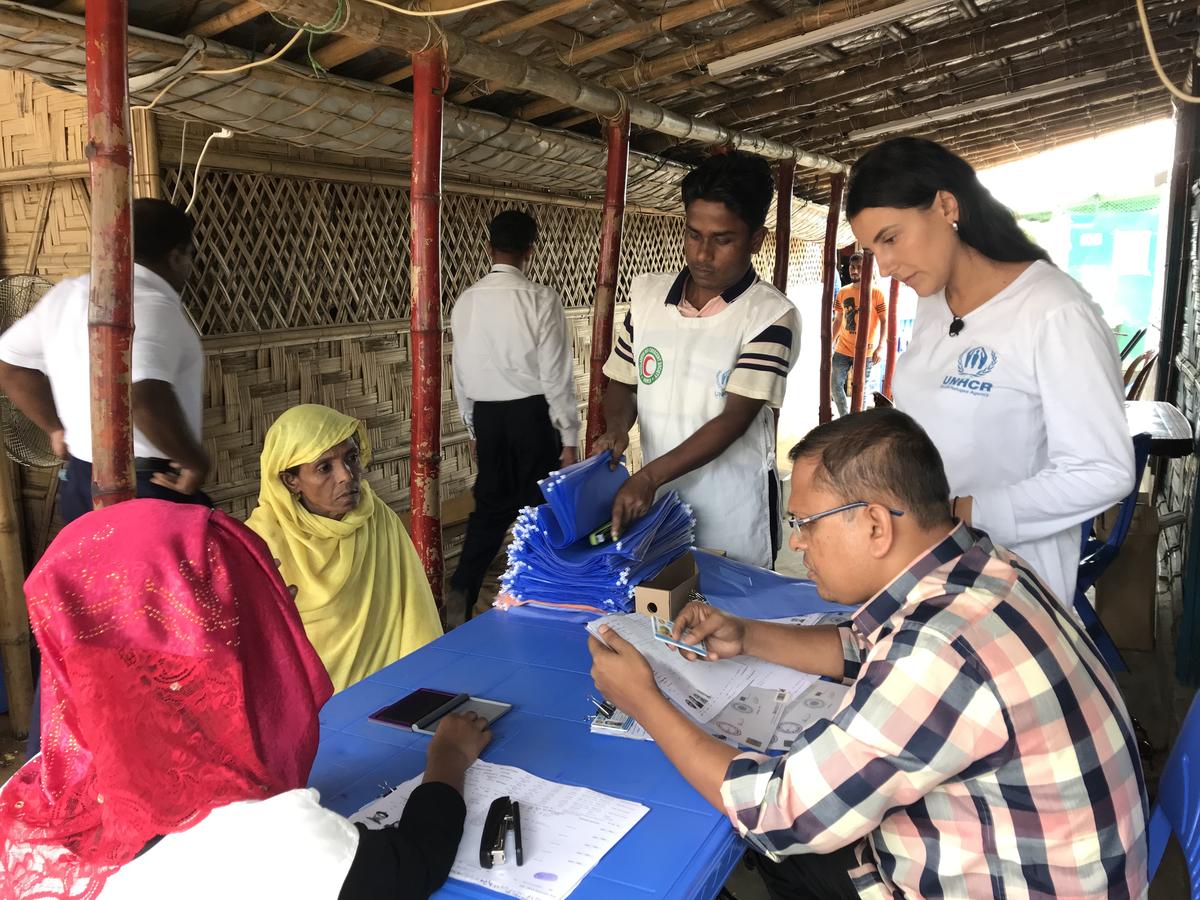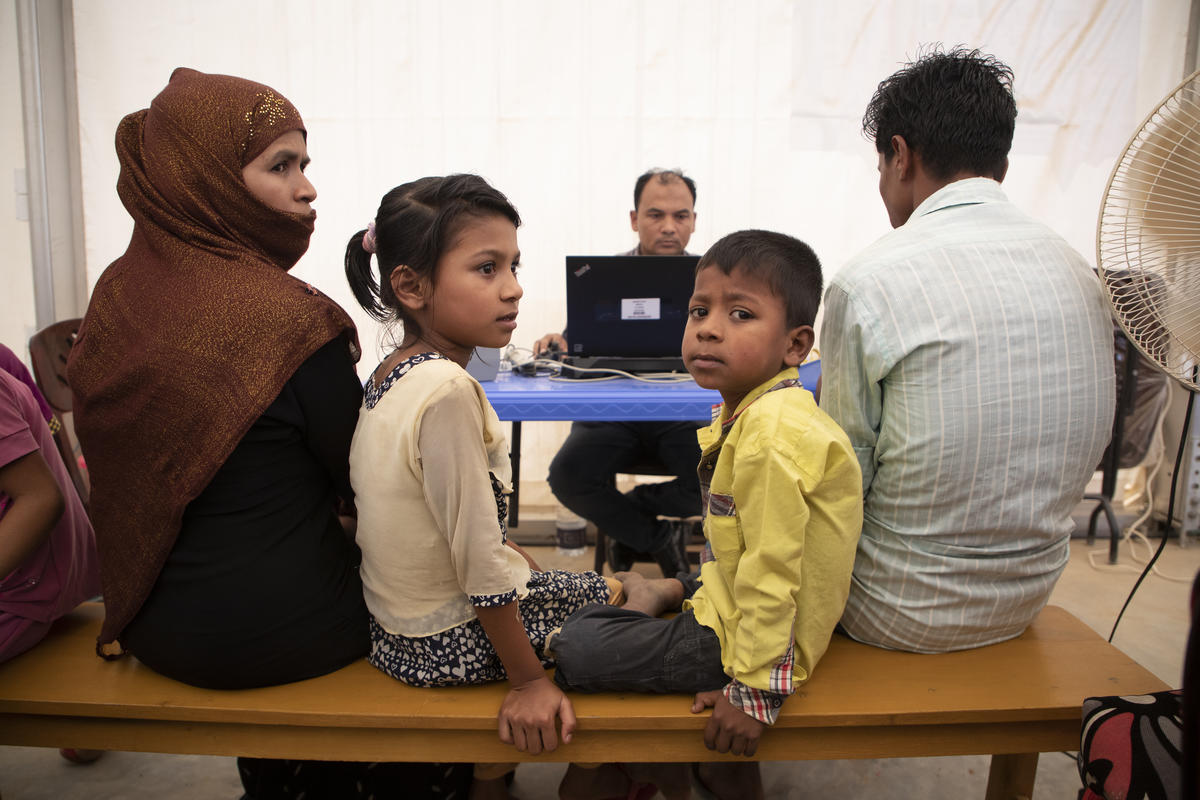More than half-a-million Afghans register to date for Pakistan's POR cards
More than half-a-million Afghans register to date for Pakistan's POR cards

ISLAMABAD, Pakistan, November 29 (UNHCR) - More than half-a-million Afghans in Pakistan have been registered in the current government exercise to provide official documentation to Afghan nationals who arrived in Pakistan after the 1979 Soviet invasion of Afghanistan.
While 507,000 is an impressive figure in any registration by a host country, it accounts for only about 20 percent of the estimated 2.4 million Afghans believed to be living in Pakistan today. Given the large scale of the exercise and the complex population involved - a mix of refugees, asylum seekers, economic migrants and seasonal workers - the registration has had to overcome many challenges to cross the half-million mark today.
The exercise is a follow-up to a government census of Afghans in Pakistan conducted in March last year. Only Afghans counted in the census can take part in the registration, which started on October 15 and is expected to run till the end of the year. Registration is implemented by Pakistan's National Database and Registration Authority (NADRA) with the support of the Commissionerate for Afghan Refugees and the UN refugee agency.
The first hurdle involves finding the right location for a registration centre. It has to be located near the targeted population and have the necessary infrastructure to set up the high-tech operation. "In some places, there's not even electricity," said Syed Akhtar Hussain Shah, who heads NADRA in Balochistan province. Remote areas are serviced by mobile registration vans.
Crowd control is another challenge. Every day, tens of thousands of people approach the registration centres. They are channelled into separate queues to be scheduled and verified and to receive their Proof of Registration (POR) cards.
At Karachi's bustling Al-Asif centre, which processes more than 1,000 people a day, UNHCR staff take crowd control seriously. Loudspeakers are used to maintain order while children who stray beyond the line are immediately ushered back into place.
When Afghans approach the verification counter to check their names against the census database, names inevitably become an issue. Asked for his wife's name, one Afghan man in Punjab province blushed, "How can I tell you in public?," before whispering it into a UNHCR worker's ear. Another man stared blankly, eventually telling his son, "Go ask your mother what her name is."
Yet others are creative with their monikers, offering a myriad of first names, middle names, nicknames and affectionate names in the hope of finding something in the database. Some say that they thought the census was a deportation ploy and had given false names that they could no longer remember.
Afghans whose names are not in the system are not registered. But some keep coming back to try their luck, while others shop around different registration centres with the same hope. The authorities have put a stop to unofficial parties trying to sell forms and cards to these "rejected" cases.
"They are clogging up the system and preventing eligible Afghans from registering," noted Indrika Ratwatte, UNHCR's assistant representative in Pakistan. "Those who did not participate in the census will be assessed by the government at a later stage."
Photos, too, have generated some controversy. In one camp in North West Frontier province, refugee elders threatened to fine men 5,000 Pakistan rupees (US$83) and a buffalo each if they allowed their women to be photographed. The issue was resolved after UNHCR staff spoke to the elders and NADRA hired female photographers to facilitate the process in a culturally sensitive way. To date, 73 percent of women registered countrywide have had their photos taken.
"This is registration on a massive scale," said Ratwatte. "It involves not only high tech equipment, but also people, logistics and dealing with political nuances. We have to be responsive to the challenges while maintaining the integrity of the system."
The benefits of registration far outweigh the challenges, he added. "Besides protecting Afghans' rights with the POR card, we're also collecting key information on the remaining Afghan population in Pakistan to better understand their situation here and what's preventing them from returning home. Together with the governments of Pakistan and Afghanistan, we hope this will help us in the planning of policies to manage the future of Afghans in Pakistan."
By Vivian Tan in Islamabad, Pakistan

